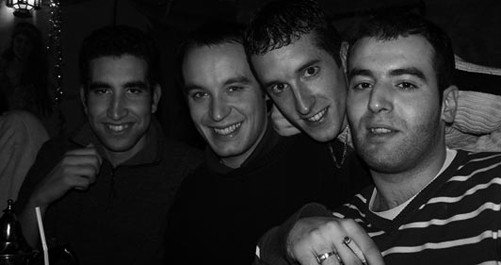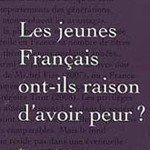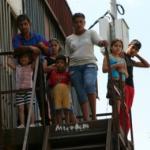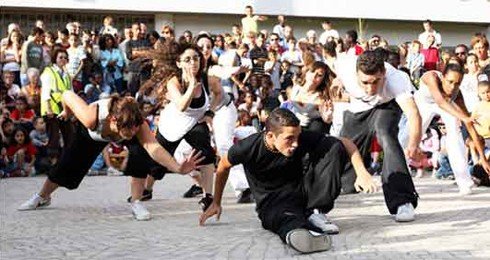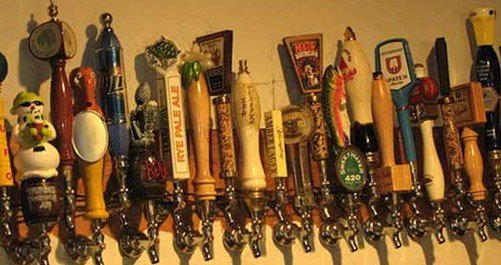Jordan: "The most important thing is finding a job"
Jordan is 19 years old. He lives in Armentieres (in the North of France). He is unemployed. He's looking for jobs in these domains: maintenance, woodwork and masonry... After secondary school, he was trained in woodwork in a technical high school in Belgium. He repeated his last year of his BEP (Brevet d'enseignement professionnel - Diploma in professional training), once, twice and then abandoned: "I didn't like the school anymore, I couldn't make it so I decided to take a decision and quit". He headed directly to Besancon to do his military service.
Since he returned, "the situation is difficult": "in the morning, all I have to do is to contact temporary work agencies once again for them to say "no we have nothing", and the afternoon, I stay at home doing nothing". He is stressed but he is a defeatist: "If you want a job, search and you'll find it".
"Fortunately there's rugby", his passion since childhood. That's where he has met all his friends. However, "the priority is finding a job. Friends come after that". Same thing for love or family. In the meantime, he lives with his mother and this doesn't really bother him. Jordan votes left because: "My friends' fathers are leftist. They explained loads of things to me especially that the right is for the rich, for those who have money. The left is for those who have little earnings". He keeps himself informed by reading La Voix du Nord(1) and watching the news on television.
He's not racist, "except towards people who cause big hassles but those who are righteous, educated and who are legal migrants have the right to live like the French". He doesn't understand why "immigrants sometimes manage to find jobs more quickly than the French". But he supports his friend Abdel to whom an interview to become a lorry driver was refused." According to him "people from elder generations were more racist". He doesn't know why.
He's quite pessimistic with regards to the world's future. But he thinks that we live better than our parents. For him, being young is "having fun and working because without work, you have nothing. You have no money, you have nothing."
Claire: "Education for all"
Claire, 23 years old, is a biology teacher in a Parisian high school since last September. She has always wanted to do this work because she loves "interaction with young people". Coming from Toulouse where she spent 2 years at university, she decided "to go up" to study in Orsay out of love. However the engaged couple who had a lot of common projects split up. A salutary separation: "I prefer my life by far. Otherwise I would be married with kids". From now on, she doesn't want to get married and thinks that "the only act that can really bind 2 persons for life is a child". She will wait for her thirties. Sexuality is "vital" for her. She says she's liberated. Maybe, because she has "always talked freely" with her mother on this subject. Coming from a very devout catholic family, she was a scout for a long time: "it has thought me what solidarity is".
Her studies were not hindered by the several drunken evenings at university. "It very difficult not to drink. It's part of social life". At University she "didn't waste her time at all. I have received high quality teachings. This is what has enabled me to pass the agreg(2) ". This is where she has also "started to reflect on the country's politics". At the University of Toulouse 2 which is very politicised, she has "gone through various strikes", especially against the law promoting equal opportunities. The founding moment: "Le Pen for the 2nd round".(3)
She remembers a successful action to liberate an illegal immigrant threatened by expulsion in Orsay: "It was about defending the values I believe in: education for all, the respect for individual rights". Since her 1st salary, she donates for Unicef and Amnesty. She's a union member, "first of all because unions support job transfers". But also "to defend public school which is disappearing. I would find it awful if one had to pay to go to school".
Kamal "Believing in social progress"
Kamal, 26 years old, is an engineer at Total, in the Defence area (western outskirts of Paris). He comes from Nogent-sur-Oise and lives with his brother in Chantilly. After finishing his studies in a post-secondary prepatory school, he integrated the National Conservatory for Arts and Crafts and then he chose to specialise in engineering at the IFP School (Institut Français du Pétrole - French Petrol Institute).
His father was a worker and his mother unemployed. He owes his success to his "professional project" and to an "adequate education". "My parents have made us understand how important school is. School is free here and I think that if we had to pay, we wouldn't have made it until the end".
Kamal would like to get married and build a family later on. In the meantime, he dedicates himself to work and to his friends. It's a difference between generations: "Before, people used to find a job, then marry and build a family. But my parents have started to understand." His three brothers have opened the way. For him, being young is "being willing and dynamic". He is resolutely optimistic. He believes in education (which should be adapted to the needs of work), in social progress and in the Republic. "Every time we say that an integration has been successful, it's always because of a academic success".
Milene: "Bringing up a child with our ideals"
Milene is 25 years old. She is doing an internship in a residence for youth legal protection and would like to become a special education teacher. She discovered her vocation while doing voluntary work. She had done theatre studies but she wasn't ready to sacrifice her life and her career. She doesn't regret anything: "I would have never been able to pass the special education teacher examination without having experienced these 5 years at University. It has helped me build my personality." She has chosen a public IUT (Institut technologique universitaire - Technological University Institute) "it's more compatible with my values".
She has a 1.5-year-old boy called Jules. For a couple, "when we bring up a child at a young age, a lot of our ideals are intact." A choice of hope like their marriage, decided quickly and celebrated among friends.
However, Milene claims to be "very pessimistic". For example, she "absolutely doesn't believe in [her] voting power". She'd love to commit herself: "We're fed up of chatting while smoking and drinking beers and still not find a political party that corresponds to our ideas". She's "scared" of globalisation. She finds it "too huge". Same thing for internet: "It seems so far away from my own way of seeing things, simple and sincere."
Like the others, she used to drink a lot in the past. "I think we're so stressed by our future, money, success; by succeeding our life, our family life and our professional one. We put loads of pressure on ourselves. And a lot of pressure in put on us."
Delphine: The most important thing for me is to succeed my personal life, have children and be loved."
Delphine is 26 years old, married and 5 months pregnant. She's a bank consultant. She did everything in order: banking diploma, job, settling down, marriage, house and a child. "We are like this because of our education." But other choices don't bother her: "Everyone has his personal life".
She was not "autonomous enough for university". The diploma "enables you to immediately integrate the world of work." She got married in church "because it's nicer". With regards to the baby, "we needed time to feel ready. We're not the kind to make a baby without thinking". "Family" is my priority: "I will always put my private life before the rest even if my professional life is still important." The world's problems "don't stop her from sleeping". She "doesn't watch news on television as it's often quite depressing." But she watches television every day.
She votes "according to the person and to the political program". She chose N. Sarkozy in order "to avoid voting for Ségolène". "I keep myself informed on what's going on but I don't watch debates on TV." She's "not racist". There are good and bad French people."
She's very involved in a basketball club. Today, she the president after having been a player, referee and coach. "It's my passion. And that's also where I met Loïc." It's the place where she has also met all her friends. Like them, Delphine has never left her city: "because I feel good here, I feel rooted."
She's an optimist but in her circle, there are "many people who are worried about their future." She feels young and doesn't think that "having a child make you look 10 years older. It gives you more responsibility which is different."
-
1) A daily regional newspaper from the North of France.
2) French high level competitive examination for the recruitment of teachers.
3) Le Pen is a French conservative, far right politician.




